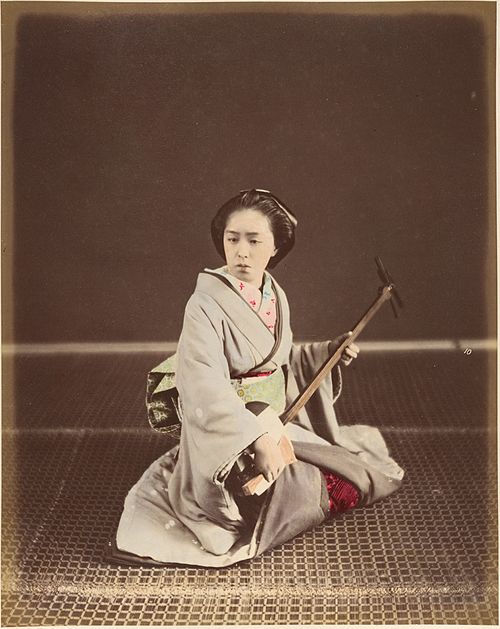Geishanoun
A Japanese female entertainer skilled in various arts such as tea ceremony, dancing, singing and calligraphy.
Geishanoun
A Japanese singing and dancing girl, trained to provide entertainment and company for a man or group of men.
Geishanoun
a Japanese woman trained to entertain men with conversation and singing and dancing
Geishanoun
a Japanese hostess trained to entertain men with conversation, dance, and song
Geisha
Geisha (芸者) (; Japanese: [ɡeːɕa]), also known as geiko (芸子) (in Kyoto and Kanazawa) or geigi (芸妓) are a class of female Japanese performance artists and entertainers trained in traditional Japanese performing arts styles, such as dance, music and singing, as well as being proficient conversationalists and hosts. Their distinct appearance is characterised by long, trailing kimono, traditional hairstyles and oshiroi make-up.
Mizuagenoun
(historical) The coming-of-age ceremony of a maiko, an apprentice geisha, often associated with loss of virginity.
Mizuage
Mizuage (水揚げ, ) was a ceremony undergone by apprentice oiran (kamuro) and some maiko (apprentice geisha) as part of their coming of age ceremony and graduation. For kamuro, who had often already lost their virginity, a patron would pay for the exclusive privilege of being a new oiran's first customer; for maiko who underwent mizuage, it formed part of a number of ceremonies and occasions used to mark graduation into geishahood, including symbolic changes in hairstyle and official visits to benefactors.



































